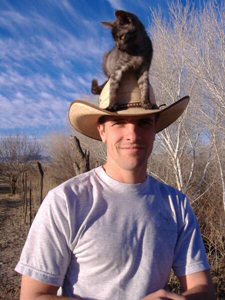
A couple of years ago, I began bringing Josh’s chickens to my farmers’ market stand to market alongside our equally popular grassfed beef. Josh and I, in a classic entrepreneurial endeavor, have made these wholesome chickens available to happy, discerning customers who would otherwise be unable to justify a three hour commute to buy a bird for dinner.
Josh processes his chickens on his farm under a legal exemption allowing him to avoid industrial (and expensive) processing plants. Each chicken he produces is clearly labeled as to origin, method of production, added ingredients (none), as well as citing the statute, which allows him to do these things unmolested.
Last weekend he was informed by the Food Safety Inspection Service, the regulatory arm of the USDA, that he faced a “situation.” They had discovered a chink in the otherwise protective “non-molestation” statute. Because he is marketing chickens to an intermediary (me), his product is therefore rendered illegal and he must desist. In a disturbing addendum, the inspector also let slip that the USDA would be “willing and free of charge” to take over inspection of his facilities, and that they would be “more than happy to help him get going,” presumably in the chicken business.
The same authority willing to allow a company to distribute (and I’m not making this up) neon-green sugar drink with the word “sweetener” (in quotes) on the ingredient list believes that customers cannot be trusted to buy a natural chicken from a reputable farmer.


